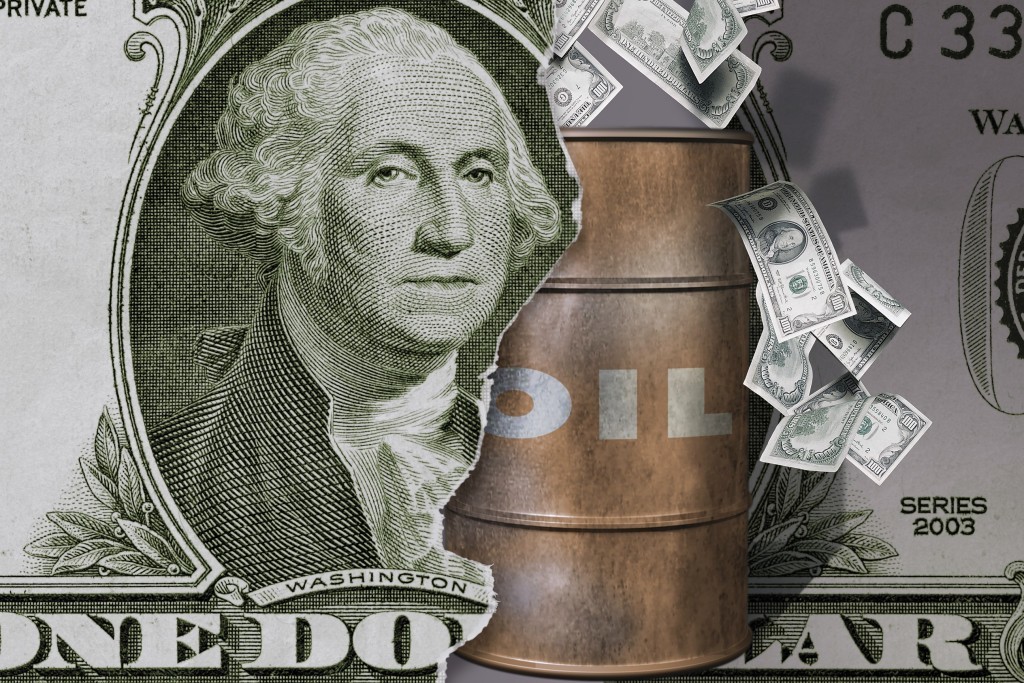
Oil extended losses below $69 a barrel after a surprise gain in American crude inventories spooked investors who are already contending with the rising trade dispute between the U.S. and China.
Futures in New York fell as much as 0.8 percent after a 2 percent decline Tuesday. The American Petroleum Institute was said to report U.S. stockpiles rose 5.59 million barrels last week. Most analysts surveyed by Bloomberg forecast government data due Wednesday will show an inventory loss. Meanwhile, the U.S. will propose more than doubling its planned tariffs on $200 billion in Chinese imports, according to three people familiar with the internal deliberations.
Oil slumped more than 7 percent in July, the biggest monthly loss in two years, on concern that trade tensions between the world’s two largest economies will imperil growth and sap global energy demand. Still, uncertainties remain whether the latest threats from U.S. President Donald Trump will ratchet up pressure on Beijing to return to the negotiating table or further increase conflict that could lead to a full-blown trade war.
“The API data is moving oil prices as we don’t have a lot of other major news” that would directly impact crude markets, Mikiko Tate, a senior analyst at Sumitomo Corporation Global Research Co., said by phone from Tokyo. Meanwhile, “the escalation of a trade war between the U.S. and China would reduce crude demand in the long term” and that concern could weigh on oil prices, Tate said.
West Texas Intermediate crude for September delivery fell as much as 54 cents to $68.22 a barrel on the New York Mercantile Exchange, and traded at $68.28 at 3:57 p.m. in Tokyo. The contract dropped $1.37 to $68.76 on Tuesday. Total volume traded was about 48 percent below the 100-day average.
Brent for October settlement fell as much as 48 cents, or 0.7 percent, to $73.73 a barrel on the London-based ICE Futures Europe exchange. The September contract declined 72 cents to expire at $74.25 on Tuesday. The global benchmark traded at a $6.58 premium to October WTI.
Futures for September delivery lost 1.9 percent to 503.3 yuan a barrel on the Shanghai International Energy Exchange. The contract rose 0.7 percent on Tuesday.
The U.S. imposed 25 percent tariffs on $34 billion of Chinese products in early July, and the review period on another $16 billion of imports ends Wednesday. Trump had threatened an additional $200 billion with levies of 10 percent, a level the administration may raise to 25 percent in a Federal Register notice in coming days, one of the people said.
At the same time, representatives of U.S. Treasury Secretary Steven Mnuchin and Chinese Vice Premier Liu He are having private conversations as they look for ways to re-engage in negotiations in a bid to avert a full-fledged trade war, two people familiar with the effort said. Talks to resolve the dispute had been stalled for weeks, with both sides refusing to budge.
American crude stockpiles probably declined by 3 million barrels last week, according to the median estimate of analysts surveyed by Bloomberg, with all but one expecting a drop. If confirmed by the Energy Information Administration’s data later in the day, it would be the third decline in four weeks.
Other oil-market news:
American drillers pumped 10.442 million barrels a day in May — about 300,000 fewer barrels per day than the EIA had projected, according to a report released Tuesday. China’s independent refiners were once the toast of the oil town, courted by everyone from OPEC producer Saudi Arabia to energy giant BP Plc and top independent trader Vitol Group. Not so much anymore.
Recommended for you
